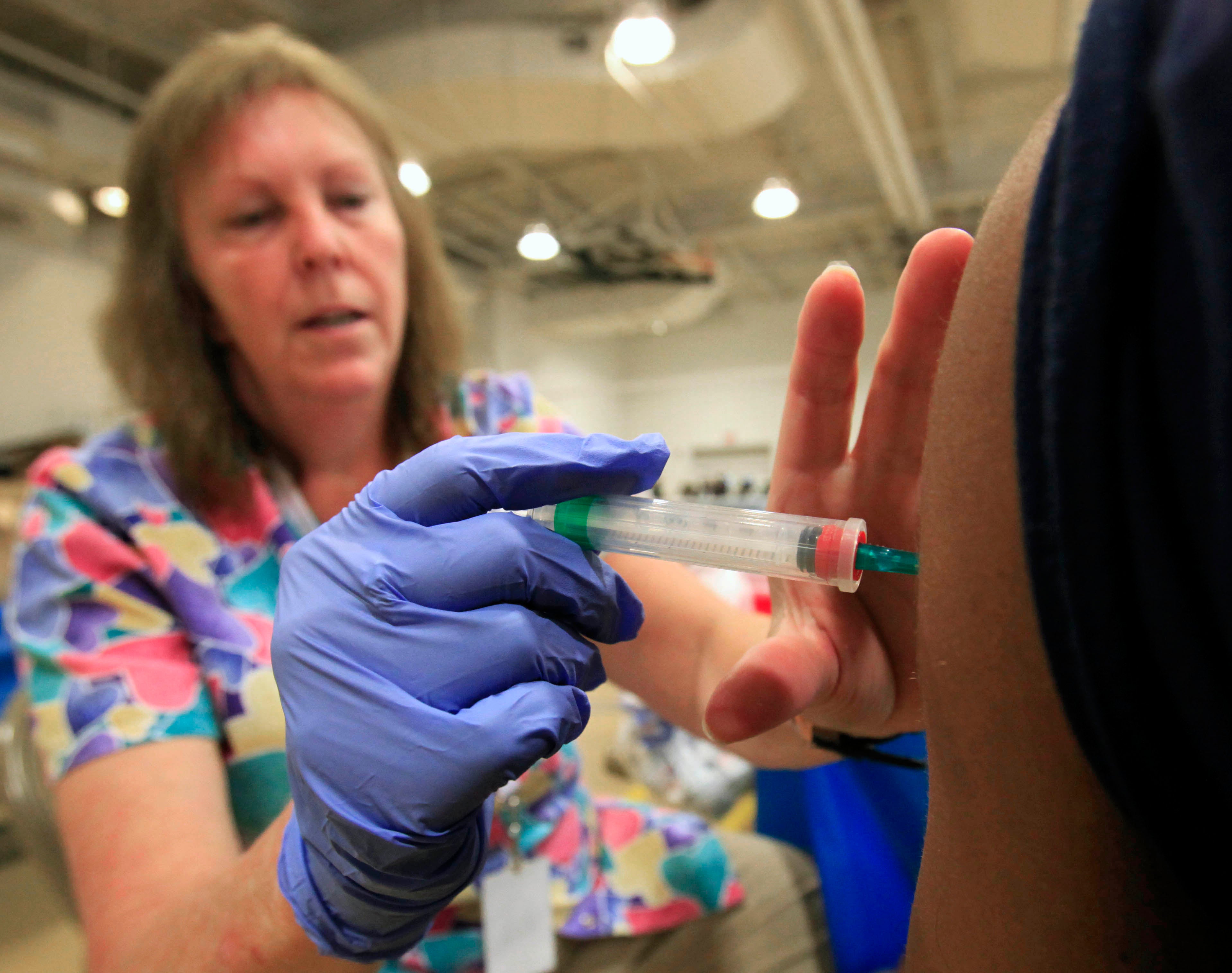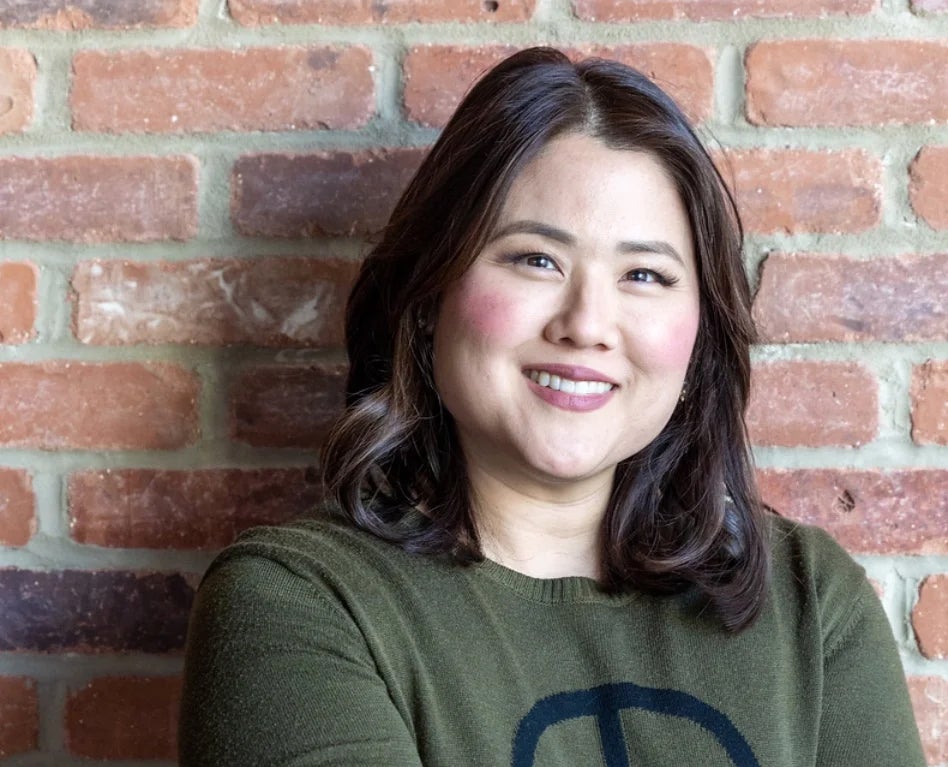Vaccine debate in Delaware [video]

(AP Photo/Rich Pedroncelli)
When epidemics like whooping cough hit, it often reignites the polarizing vaccination debate.
Delaware’s whooping cough outbreak between November 2013 and August 2014 registered 221 cases, with 202 occurring in 2014 alone. In 2013, the state saw 57 reported cases of pertussis.
The majority of this year’s cases occurred within the largely unvaccinated or under-vaccinated Amish community in Kent County. Delaware’s Division of Public Health said it was unclear whether the remaining cases involved people who were immunized against whooping cough.
“Whooping cough by nature as an illness, it comes in cycles. So every three to five years we do expect to see an increase,” said Dr. Awele Maduka-Ezeh, Delaware Division of Public Health medical director.
And while the unvaccinated and under-vaccinated represent a very small percentage of the population in Delaware and nationwide, the Centers for Disease Control reported a 30 percent increase in cases of pertussis across the country.
Quick to blame
Wilmington mom Ally Heiger said health officials are often quick to blame unvaccinated children nationwide when epidemics like whooping cough hit, when they should be blaming an ineffective vaccine.
“The majority of people that are becoming infected and spreading this disease have all been up to date on their vaccinations, on schedule,” said Heiger, referencing several published news reports online.
According to the CDC, 98 percent of Delaware children ages 19 to 35 months were vaccinated against pertussis in 2013.
She continued, “[Health officials] need to be developing a better vaccine that’s more safe, longer lasting, more effective, instead of recommending that people continue to receive a product that has been shown to have massive, large-scale failure.”
Heiger’s lack of confidence is not limited to whooping cough alone. She questions the safety and efficacy of vaccines in general, which is why Heiger chose not to vaccinate her daughters Sadie and Lilah, ages 6 and 2.
About face
Heiger didn’t always feel this way about vaccines. When she was in nursing school, she described herself as very pro-vaccine.
“The reason I started questioning it was a lot of my nursing colleagues and even some of the people that I was working under in the hospitals informed me that they did not vaccinate their own children and I’m sitting here thinking, ‘Why?'”
That was more than six years ago when Heiger first started seeking out answers, beginning with the ingredients in vaccines.
“There is a lot of components that I would find troubling injecting into my child, like preservatives, and aluminum and live viruses in certain cases,” Heiger said. “The more I looked, the less convinced I was that this was something that I was comfortable with.”
Heiger also looked at the childhood diseases she would be vaccinating against. Because most of the diseases are treatable, she was more willing to take the risk of not vaccinating versus the perceived benefits in her mind.
“If my child is going to get, acquire this disease naturally, then that’s fine, they’re going to get lifelong immunity, it’s not an immunity that’s going to be temporary and able to wear off because we don’t know how long vaccines last,” she said. “And then I’ve prevented them from having all of the other things injected as well.”
Heiger also believes vaccines play a contributing role in the high rates of diabetes, auto-immune disorders and chronic conditions among children in the U.S.
Look at the science
Dr. Awe Maduka-Ezeh emphasized there is no link between vaccines and things like diabetes and chronic diseases.
“If we are seeing an increase in diabetes, and heart disease and obesity in the United States, it’s not because of the vaccine, it’s because of our lifestyle, which incidentally in the year since the use of vaccines became widespread, those are the same years people became more sedentary,” Maduka-Ezeh said.
Maduka-Ezeh admitted when it comes to pharmaceuticals there’s aways some degree of risk, but pointed to the science. “Before a vaccine is approved they go through very rigorous studies to make sure they’re safe and also efficacious.”
Speaking to the ingredients in vaccines, DPH’s medical director said the aluminum is needed to increase the body’s immune response and added a controversial ingredient used as a preservative, thimerosal, which is a form of mercury, had been removed from most vaccines. “But nonetheless, extensive, rigorous studies have shown that even the thimerosal-containing vaccines don’t have any significant adverse effect.”
Hot button topic
Dr. Matthew Gotthold described the vaccine debate as a very emotional, “hot button” topic for many pediatricians. Gotthold, a pediatrician with Delaware Pediatrics in North Wilmington, treats about 2,000 children; of those, 23 are unvaccinated.
“Many practices have opted to choose not to see the children whose families don’t vaccinate,” Gotthold said. “My opinion over the years has really been that I’m there first for the child and despite what their parents’ thoughts and beliefs are, that that child still needs an advocate in the healthcare realm.”
Gotthold’s opinion mirrors the official stance of the American Academy of Pediatrics. The AAP encourages doctors to offer their services, but to continue to educate parents about the potential risks associated with not immunizing.
Critics have argued that because most people are vaccinated, parents of unvaccinated children have a skewed picture about the importance of immunizations.
“You get a better picture when you go back to the pre-vaccine era,” Maduka-Ezeh said. “Look in the 1940’s what happened then with things like smallpox before the vaccine was discovered or even with pertussis before we had a vaccine. That would give you a better picture of how important vaccines really are.”
“Unless you see as many children as we pediatricians see, it’s kind of a distant, hard to grasp thought in terms of just how catastrophic some of these diseases can be,” said Gotthold, who had the misfortune of studying in Philadelphia when he saw five kids die of measles one summer at St. Christopher’s Hospital for Children.
The anti-vaccination movement gained a lot of traction in the U.S. and in Europe after former British doctor Andrew Wakefield published a 1998 paper linking the measles, mumps and rubella vaccine to autism.
The paper has since been discredited and Wakefield was removed from medical practice in the UK. Since then, and specifically over the last couple of years, Gotthold said the number of non-vaccinating parents in his practice has leveled off.
“I think an awful lot of that has to do with the fact that there’s more and more substantial information in terms of the lack of risks for vaccine,” Gotthold said. “In the past, a lot of the people who dispute the effectiveness of the safety of vaccines have been very vocal. And I think that now sort of the silent majority is having their say as well.”
WHYY is your source for fact-based, in-depth journalism and information. As a nonprofit organization, we rely on financial support from readers like you. Please give today.





